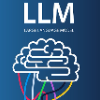Large language models (LLMs) have significantly improved their ability to perform tasks in the field of code generation. However, there is still a gap between LLMs being capable coders and being top-tier software engineers. Based on the observation that top-level software engineers often ask clarifying questions to reduce ambiguity in both requirements and coding solutions, we argue that the same should be applied to LLMs for code generation tasks. In this work, we conducted an empirical study on the benchmark and analysis of the communication skills of LLMs for code generation. We define communication skills of LLMs as ``being able to ask clarifying questions when the description of the code generation problem has issues''. We created a new benchmark, HumanEvalComm, by modifying problem descriptions according to three issues: inconsistency, ambiguity, incompleteness. We defined new evaluation metrics such as Communication Rate and Good Question Rate, and then experimented on HumanEvalComm with different Code LLMs, and a new LLM agent approach, Okanagan, to identify and ask questions in ambiguous parts from code and descriptions for further refining the generated code. Finally, we discussed evaluation results by comparing Code LLMs and Okanagan with our findings.
翻译:暂无翻译



